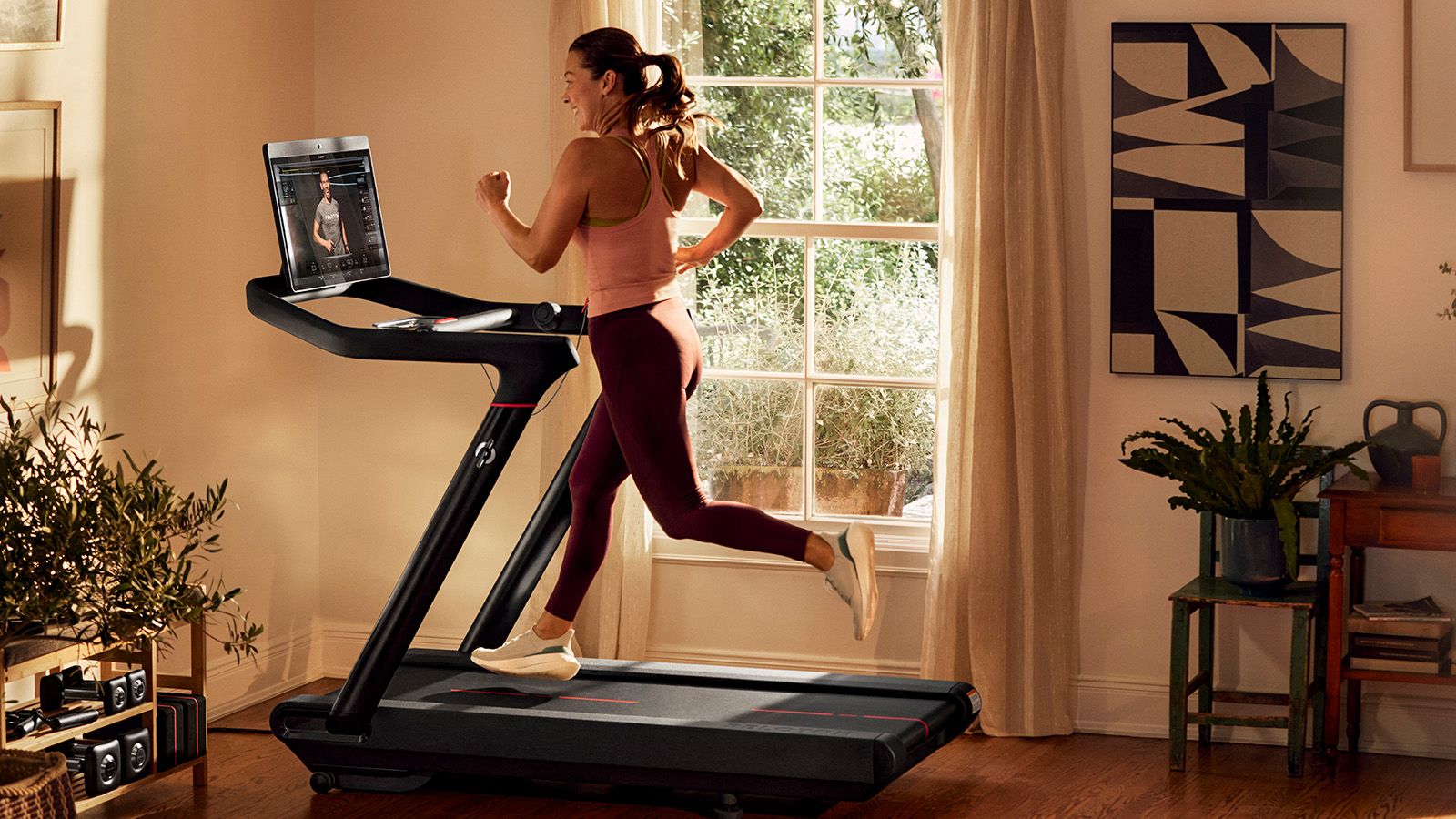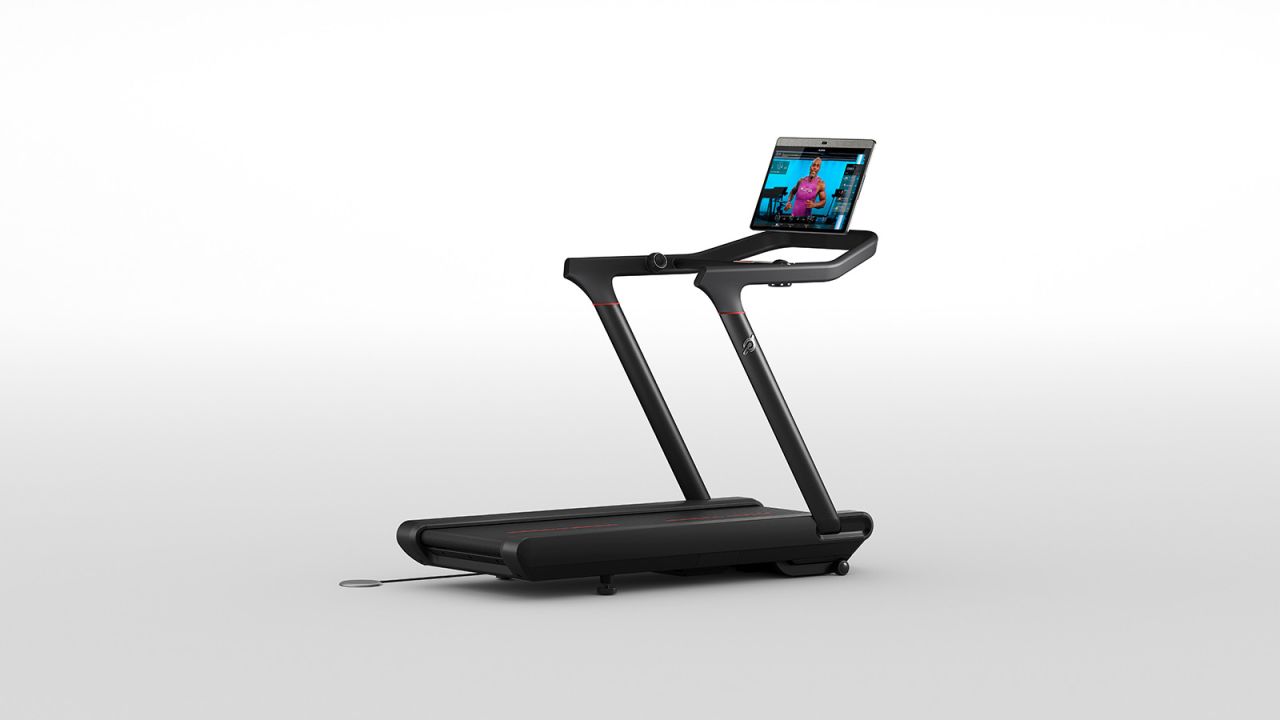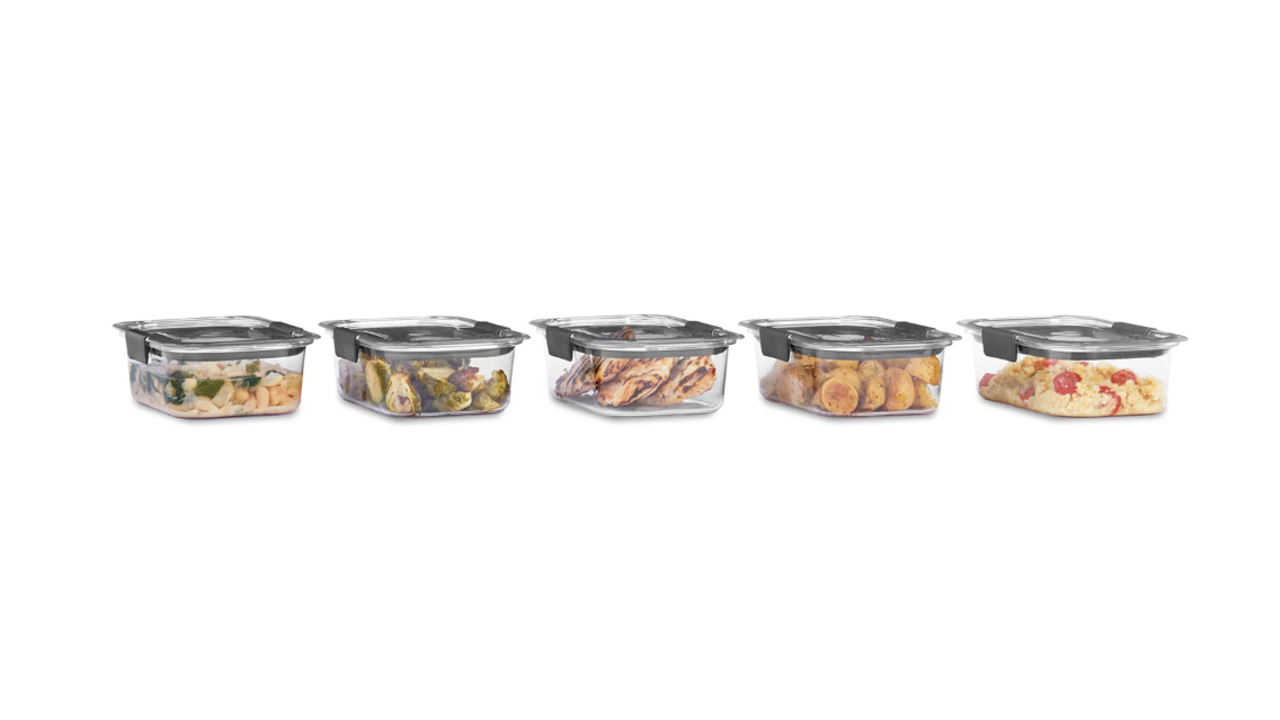It’s no secret that the online exercise boom, paired with the pandemic, has transformed how people work out. While gyms don’t seem to be going away anytime soon, there are those who appreciate having access to virtual personal trainers and classes at their fingertips — in the comfort of their own home. And though there are plenty to choose from, Peloton has remained a widely known option, due as much to its popular instructors as well as to its well-reviewed equipment.
Though the company’s bike may be the most infamous (thanks, Mr. Big), the Peloton Tread (starting at $3,495, not including a separate $44-per-month membership) has fast become a recognizable and high-tech option in the online fitness space — bringing together one of the sleekest treadmill designs with a robust online fitness platform.
I’ve owned the Peloton Tread for over a year, and here’s everything you need to know before you decide to invest in one for your own home gym.
The Peloton Tread is a no-brainer for Peloton addicts who want to add a treadmill to their home gym. Sleek, good-looking and compact, it comes with a large 24-inch touchscreen to better see your favorite instructors. But with a price tag starting at $3,500 (though you can nab one now for the holiday price of $3,300), there are other treadmills that might be a better, and more affordable, fit.
What we liked about it
Upscale, space-saving design
Many treadmills are bulky, taking up large sections of a room. A large gray rectangle is not what most people appreciate when it comes to decor. The Peloton Tread handily bucks those trends with a sleek, compact design that fits snugly into small rooms.
The 68-inch-by-33-inch-by-62-inch footprint keeps the Tread from filling a room without sacrificing running space, boasting a generous 59 inches of belt length. Taller runners with longer strides will have no issues on the Tread. Plus, its formidable design includes a large touchscreen, bright red-and-black color scheme, textured running belt and slim form factor.
My Tread sits in a fairly small 13-foot-by-11-foot room that doubles as my home office, and it doesn’t feel cramped. I still have plenty of room next to the Tread for other activities as well, such as weightlifting and yoga.

Ergonomic control knobs and buttons
One of the most thoughtful features of the Peloton Tread are the intuitive control knobs on each side of the machine. Other treadmills have the standard speed and incline buttons at the front, but reaching forward can interrupt your running stride — and having to keep doing this throughout a run can get annoying.
By putting a control knob to your right and left, the Tread allows you to increase or decrease the incline and speed with just one quick swipe. Additionally, each knob has a button in the middle that allows you to jump to the next highest level. For example, pressing the button at 3.2 speed will jump the speed to 4.0.
One disappointment is there are no jump buttons for decreasing speed and incline. However, the knobs are almost always responsive and rarely do I find myself having to swipe the knob more than once.

Industry-leading software
Peloton is known for its personal training ecosystem. There are just over 50 instructors across many disciplines — biking, bootcamps, meditation, stretching, running and even boxing, to name a few — all of whom are professionals in their craft (as well as being excellent and personable entertainers). And this ecosystem is translated almost flawlessly to the Tread.
Here are a few of my favorite features that help take my home workouts to the next level:
●?Stackable classes: To mix things up, you can create a playlist of sorts, or “Stack,” of different classes that will flow one after another. Before your workout, you manually select which classes you want and they get put in your “Stack.” For example, you can stack a running warm-up class, HIIT class, then post-run stretch. After one class ends, you click a button on the screen to start the next class, avoiding any wasted time thinking about what you want to do next.
●?Social and competition features: The Peloton software includes many ways to keep your motivation high for exercising. Achievements and monthly challenges offer fun incentives, while in-class leaderboards unlock your competitive side. And though it’s not an exclusive feature to the Tread, it even comes with a webcam so you can do classes together with your friends.
●?Body metrics: The Tread helps you work on every muscle with Body Activity. Nothing needs to be set up to access body metrics. The software will show you which muscles you have worked on in the last seven to 30 days. Want to grow your glutes but only 10% of your classes have targeted them? You’ll get personalized class recommendations that hit glutes. Muscle weaknesses quickly become your strengths. You can access Body Activity under your profile overview on the Tread.
What we didn’t like about it
The price
While the Peloton Tread is a great-looking treadmill with one of the most popular and powerful online fitness platforms, the price puts it in competition with some of the highest-end treadmills on the market. Yet, for its $3,495 price tag, it may lag behind the rest of the comparably priced field when it comes to performance, depending on the treadmill.
For example, when I compare the Peloton Tread to the NordicTrack Commercial X22i treadmill priced at $3,499, the NordicTrack boasts many of the same features as the Tread, yet the Commercial X22i spanks the Tread with -6 to 40% incline control compared to the Peloton’s 0 to 12.5%. The NordicTrack treadmill also comes with integrated push bars and sled grips for even more exercise options as well as two built-in fans to keep you cool during your workout — neither of which are included in the Peloton Tread. Plus, an iFit subscription is cheaper than the All-Access Peloton Membership (though that is also due to the lack of celebrity instructors).
No rotating screen
If you’re only planning on doing runs on the Peloton Tread, a rotating screen may not be a big deal. However, it becomes a hindrance when trying out other classes like strength, stretching, yoga and bootcamps.
For the most part, the big 23.8-inch screen is perfectly viewable if you’re on the Tread or standing next to it. However, there have been times when the arms of the treadmill block the screen when I’m on the floor. I sometimes have to get up multiple times to check what the instructor is doing because I didn’t understand their instructions.
If you have a TV near your Tread, you can cast the workout to the TV to get a bigger screen (one of the Tread’s best features). But if you don’t, you’re stuck either having the Tread’s screen sometimes obscured or transitioning the workout to the Peloton app on your phone or tablet, which can take up time.
The Peloton Bike+ has a rotating touchscreen that makes getting off the bike seamless for other classes. Hopefully this feature makes it into future editions of the Tread.
Connectivity quirks
As much as I love the Peloton software on the Tread, there are some connectivity quirks that need to be ironed out.
First, some Bluetooth headphones have trouble connecting. While the most popular brands, AirPods and Galaxy Buds, connect almost flawlessly, lesser-known brands can be finicky. My JBL Endurance Peak 2 earbuds, for example, sometimes connect without issue and other times it takes multiple minutes before the Tread recognizes them.
Second, the Tread can only directly connect to one smartwatch and one fitness app: the Apple Watch and Strava. You can sync workout statistics to other smartwatches and apps, like the Galaxy Watch and Samsung Health, but only if your watch and preferred fitness app can sync with Strava. For such a popular and high-priced machine, the lack of direct connectivity to the Tread is disappointing.
How it compares
The Peloton Tread is a great treadmill in its own right. However, there may be better options for you if the Tread’s price tag isn’t appealing.
If you still want to be part of the Peloton ecosystem without paying the luxury price, the Horizon 7.8 was made for you. At $2,000, the Horizon has powerful speakers, QuickDial controls that are similar to the Peloton Tread, the same running belt length and Bluetooth options for heart rate tracking. This treadmill was engineered specifically to be used with Peloton or similar streaming apps at a much lower price point.
And if you don’t care about the Peloton ecosystem but still want interactive fitness, the Bowflex T22 starts at $2,300. The Tread includes a one-year JRNY fitness membership and has the same sized screen and running belt length as the Peloton Tread. You can even watch Netflix, Hulu or Amazon Prime while working out on the Bowflex.
There are also foldable treadmills, such as the Horizon T101, that are about as space-saving as you can imagine. They are also significantly cheaper, with some going as low as $350. Just don’t expect quality or a rich feature list with foldables. In that way, the Peloton Tread is a good compromise between cutting-edge interactive fitness and a sleek, space-saving design.
But what about other at-home online fitness platforms? Peloton’s software is most often compared to Tonal ($3,495) and the Lululemon Studio Mirror ($1,495). While neither of them provide running workouts, obviously, they both offer a range of classes, from strength training to HIIT workouts. Also, both hang on the wall, saving much more space than the Peloton Tread. Both platforms also cost roughly the same per month as Peloton’s All-Access Membership ($44): Tonal at $49 and Mirror at $39.

Bottom line
When Peloton broke onto the scene in 2012, it began to redefine how people would exercise. And when we were relegated to our homes during lockdown, it became a lifeline for many exercise enthusiasts and beginners alike.
The Peloton Tread continues that legacy with a compact, sleek design and industry-leading software that truly pushes people to be their best. Yet, this comes at a cost. If all you need is a basic treadmill and don’t care about the Peloton ecosystem, you may want to look elsewhere. The high price may not be affordable for those who just need to run indoors, and the Tread’s feature list is smaller than other treadmills at this price point.
However, my wife is an avid runner and she has used the Tread to train for half-marathons multiple times. And not wanting to break my daily streak, I find myself doing at least one class a day. Since getting the Tread, it has truly put exercise at the front of our minds as well as in our daily lives.

















